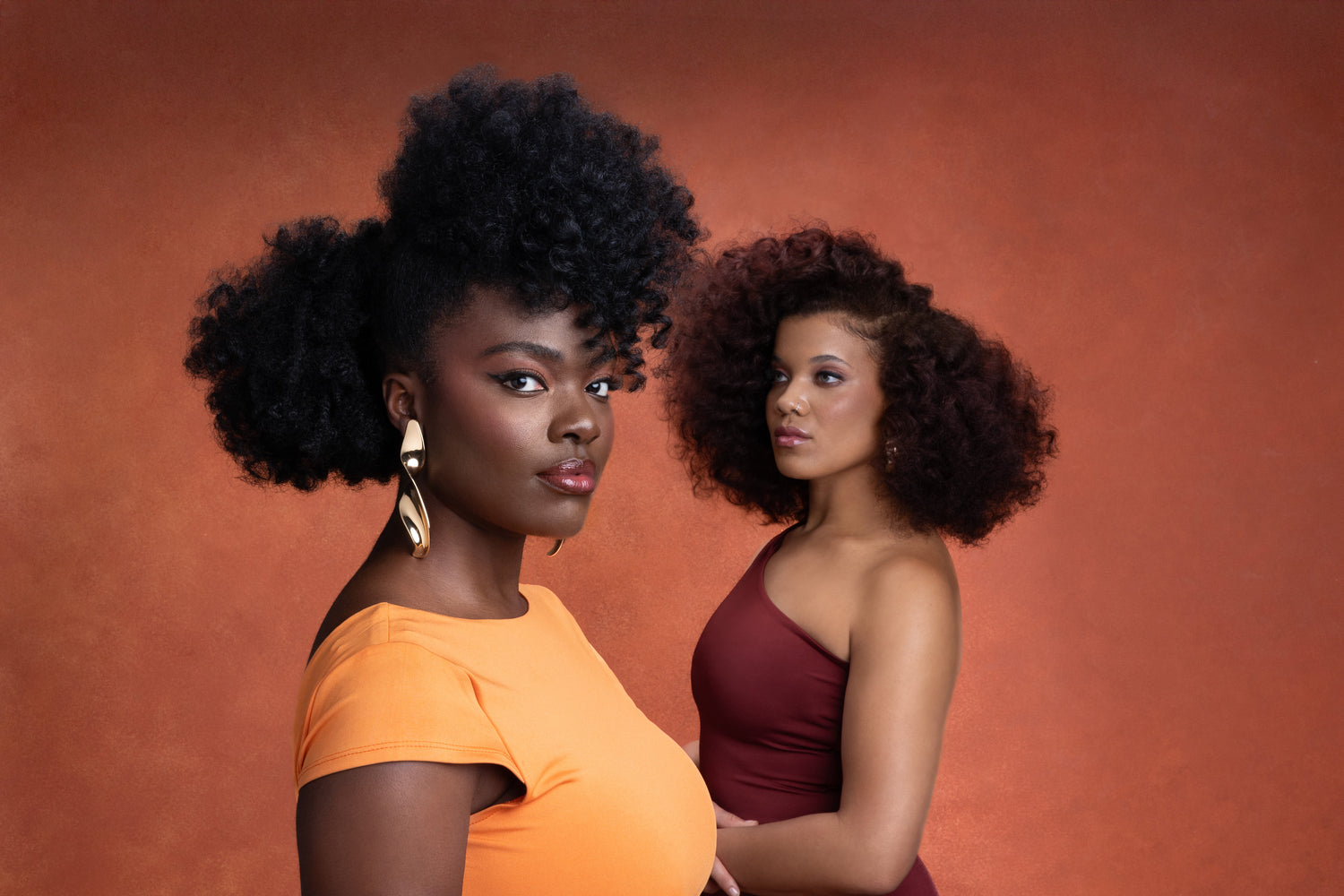Written by Jeanette Nkwate
At some point in your natural hair journey, you might have heard about scalp and hair oiling. If not, it’s the simple premise of lubricating or 'greasing' your hair and scalp with an oil. Many people do it under the assumption it will give them more shine, stimulate growth, add moisture and soften hair. But does hair and scalp oiling actually work? Is it a myth? Let’s get into it.
Does Scalp Oiling Work?
Scalp oiling is slightly different from hair oiling as the scalp is living tissue, whilst hair is made up of dead keratin (protein) bundles. As living tissue, if you do not have any scalp issues, your scalp may obtain several specific benefits from being oiled.
Our favourite oiling benefit is, if you use an oil like Nourish or Soothe, you’ll be able to maintain a healthy scalp and fight dryness without leaving buildup. If you are suffering from an itchy scalp, the help of lightweight oil can help soothe the itchiness, as prolonged scalp scratching can break the skin and damage hair follicles.
Oiling your scalp also help it stay more protected from the weather elements and even insect bites! Now, that’s a win-win.
Moreover, oiling your scalp can actually have a knock-on effect on your hair, too. As you gently massage the oil into scalp with the tips of your fingers, it stimulates blood flow to the area, which over time promotes hair growth.
When Not To Oil Your Scalp
Do not oil your scalp if you’re suffering from a scalp condition like seborrheic dermatitis, psoriasis or eczema, as applying more oils can sensitise your already irritated skin.
This means you can develop an allergic reaction to a product you were previously not sensitive to because you applied it to damaged skin. If you have a medical problem on your scalp then see your GP and a trichologist and lay off of the scalp oils until it has healed.
If your routine already uses very thick oils, butters or 'hair grease', there’s no need to add more oil. In fact, your scalp probably needs a breather as too much of this can block your hair follicles.
Does Oiling Natural Hair Work?
Onto the topic of oiling natural hair. First of all, it’s important to remember that oils aren’t truly moisturisers. But oiling Black hair and curly hair does also have several benefits because, whilst water is the primary hydrating ingredient, some oils like olive oil and coconut oil can provide some moisture as their molecules are small enough to penetrate the hair.
In curly and coily hair, the oil produced by your scalp (sebum) has a hard time making it all the way down the hair strand due to all the texture in the way. So hair oiling helps replenish and mimic the natural sebum that natural hair often lacks.
One benefit of oiling hair is the oil’s sealing properties that help prevent the moisture in the hair from escaping. Some oils don’t penetrate the hair but sit on top of the hair shaft, like jojoba or mineral oil. This is why they are able to keep the hydration you put in your curls locked in to some degree.
Do keep in mind that no oil is an absolute barrier on the hair, so some water can still enter in and out. However, moisture loss is much slower in hair that’s been oiled than not.
Want to try it for yourself? Incorporate hair oiling in your hair routine by following the LOC/LCO method. In these techniques, you use an oil like Seal at the end of applying a liquid-based product and then a cream product, or after you apply a liquid-based product but before the cream. Whatever works for you.
Another benefit of oiling your hair is the reduction of hygral fatigue. When you oil hair before washing it, you protect it from the damaging repeated effect of water entering and leaving the strand, making the cuticle expand and contract. Hygral fatigue is the resulting hair damage caused by this repeated strand expansion and contraction. It makes your curls and coils more prone to breakage and losing moisture faster. To fight this issue, we recommend pre-treating your hair with coconut oil which reduces the amount of water that can enter the hair during washing.
Is Daily Oiling Good?
We don’t recommend doing it daily as too much oil can still be a bad thing. It may end up leaving your hair and scalp greasy, and the excess oil might end up blocking hair follicles on your scalp and cause pimples. When oiling hair, ensure you use a sulphate-free shampoo like Swish to remove any oil build-up accumulated in your routine.
As you can see, oiling your hair and scalp can bring in a range of benefits. Oils should be treated like the BFF of your natural hair, not a foe. But should you oil your scalp and hair?
Well, aside from the caveats that mentioned in the article, we're in favour of scalp oil. If your scalp is free of medical woes and you have a quality, lightweight scalp oil then you're all good!

